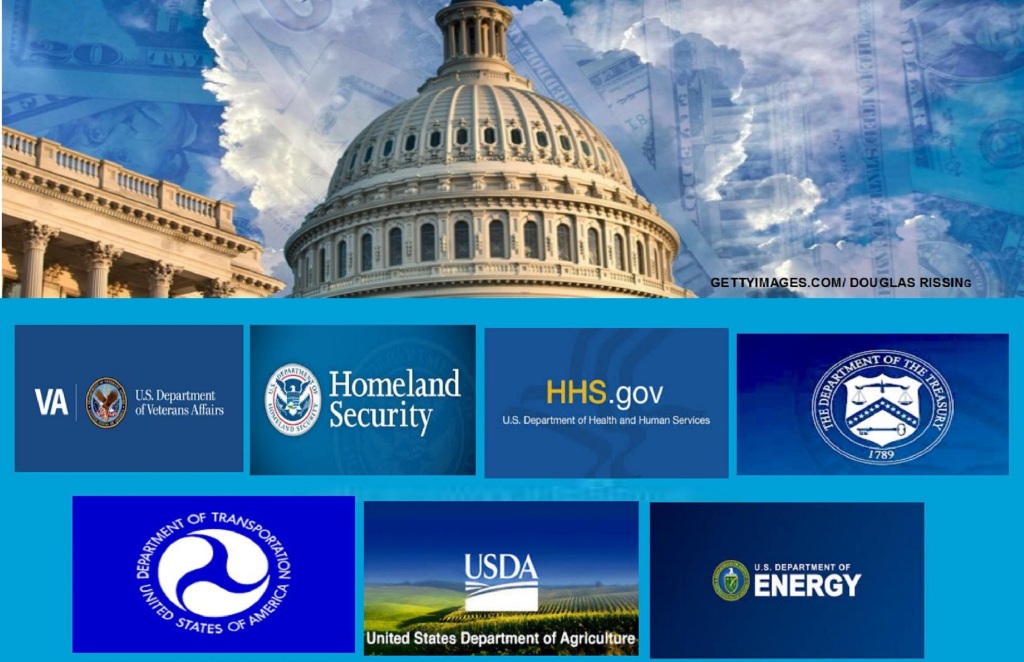
“WASHINGTON TECHNOLOCY” By Ryan Nelson
“From improving cybersecurity to modernizing legacy IT systems to enhancing the citizen experience, civilian agencies are prepared to focus their attention on these areas in the remaining months.”
___________________________________________________________________________________________________________
“As the federal government prepares to finish out fiscal 2024, IT vendors and solution providers would do well to understand where the opportunities exist in civilian agencies.
From fiscal 2023 to fiscal 2024, the proposed budget for IT in civilian agencies increased 13 percent. Among civilian agencies, IT budgets generally remain stable even when budgeting in general is uncertain, because IT is considered a major mission enabler.
While specific programs change by agency, overall, the fiscal 2024 civilian IT budgets support four specific priorities:
- Bolstering cybersecurity posture
- Modernizing legacy IT systems
- Improving citizen experience
- Creating data-driven organizations
Those who hope to sell their products and services to federal civilian agencies need a solid understanding of each of these priorities. They should align their capabilities to support each agency’s key initiatives.
Veterans Affairs programs
Citizen experience is a primary driver of IT investment for the VA in fiscal 2024. Electronic health records modernization and automated appeals processing are two large initiatives based around improving veteran access to health records and improving processing times.
Electronic healthcare modernization. This $1.9 billion initiative will provide for the purchase of licenses and activities for additional future medical center deployments, purchase of computer hardware and interface development.
Automated appeals processing. This Toxic Exposures Fund program, budgeted at $1.2 billion, will modernize IT systems and infrastructure to support expected increased claims processing, including investment in claims automation.
Homeland Security programs
One of DHS’ key priorities is advancing cybersecurity. This priority actively implements strict access controls and authentication, while strengthening cyber resilience across critical infrastructure sectors, through proactive threat mitigation and continuous monitoring programs.
DHS is optimizing data management with a cyber analytics system and an intelligence data environment for analytics platform. These innovations empower analysts with insightful data for informed decision making while improving data storage efficiency for border security.
Cyber Analytics and Data System (CADS). Budgeted at $425 million, this “system of systems” will provide a scalable analytic environment to integrate mission visibility data sets and provide advanced analytic capabilities to the CISA cyber operators. CADS expands cyber mission systems engineering, mission IT infrastructure, and cyber operations tools and services needed to enable CISA cyber operators to fully achieve their mission objectives.
Continuous Diagnostics and Mitigation (CDM). With a funding request of $421 million, the CDM program boosts federal civilian network security by offering continuous monitoring and response. It deploys technologies and services to minimize cyber threats and enhance system management. CDM tools provide data to agency dashboards, which in turn feed into a federal dashboard managed by DHS for broad “.gov” vulnerability oversight.
Health And Human Services (HHS) programs
A key driver for HHS’s IT initiatives during FY2024 is measuring and improving patient experience to enhance satisfaction. HHS is prioritizing healthcare data management and data-driven decision-making with comprehensive data collection and health data sharing. HHS is also putting a priority on cybersecurity, taking proactive steps to fortify its defenses, safeguard sensitive data, and ensure data protection for its clients and stakeholders.
Public Health Service Act Evaluation set-asides. The Office of the National Coordinator for Health Information Technology will support more equitable access to healthcare data. This entails updating health IT and data standards for interoperability, advancing policies that improve the secure exchange of electronic health information between patients and providers, and coordinating between key federal and industry partners in health information technology.
Enhancing cybersecurity capabilities. At $188 million, the budget provides an increase of $88 million above FY2023 enacted for cybersecurity initiatives in the Office of the Chief Information Officer (OCIO). The program supports increased IT capabilities and security development, including directing $50 million for investment into zero-trust architecture.
Treasury programs
Treasury is placing a priority on cybersecurity to safeguard its critical operations. It is pursuing zero-trust architecture and investing in enterprise-wide cybersecurity capabilities and services. In particular, the IRS is investing in technology modernization efforts to improve efficiency and the taxpayer experience. This includes retiring legacy systems, adopting modern architectures, and ensuring cybersecurity. User-centered applications, cloud infrastructure migration, and a strong focus on data security are planned to protect taxpayer data during this transformation.
Business Systems Modernization. Funded to the tune of $1.3 billion through both discretionary and IRA money, this program’s goal is to accelerate the development of new digital tools to improve communication between taxpayers and the IRS.
Cybersecurity Enhancement Account. Funded at $215 million, this program aims to improve cybersecurity across the enterprise through zero-trust architecture, security logging, and cloud security upgrades.
Transportation programs
The Transportation Department’s IT investments are focused on system modernization and improving safety. Major investments include modernization of the National Airspace System and telecommunication infrastructure. Management of the air traffic system is the responsibility of the FAA. Consequently, the FAA regularly has the highest IT budget within the department.
National Airspace System (NAS) modernization. With a budget of $115 million, the goal of this program is to adjust operations based on current events and to increase capital investments. This includes a significant long-term commitment to ensure the continued safe and efficient operation of the air traffic system.
FAA Enterprise Network Services. At $200 million, this program focuses on telecommunications infrastructure, network services, and operational support. This initial funding, followed by sustained multiyear investments, will ensure FAA has the appropriate level of secure communications to support NAS operations.
Agriculture programs
Database protection and management are driving the USDA’s IT investment. Major IT initiatives are related to genomic and bioinformatic database management and security. The goal of these initiatives is to use data to improve livestock and crop output. The Agricultural Research Service is the agency responsible for managing these initiatives, and the subagency has hundreds of millions of dollars of IT funding to invest in these programs.
Livestock Production Research. ARS’ livestock production program, budgeted at $151 million, aims to safeguard and use genetic and genomic databases, and bioinformatic tools and technologies, to improve animal production systems.
Crop Production Research. With a budget of $373 million, the USDA’s crop production research is aimed at using plant genetic resources, as well as associated genetic, genomic, and bioinformatic databases, to aid in selection of plant varieties with improved traits.
Energy programs
The Department of Energy’s main IT investment driver is the resilience of the energy supply chain. This includes securing energy infrastructure from cyber attacks and decarbonization of the power grid. Decarbonization reduces reliance on potentially vulnerable supply chains and improves the stability of the nation’s power grid.
The cybersecurity investment will be administered by DOE’s Office of Cybersecurity, Energy Security, and Emergency Response. The decarbonization effort will be handled by the Office of Manufacturing and Supply Chains.
Risk Management Tools and Technologies. Budgeted at $135 million, RMT will lead supply chain security efforts as part of the Energy Cyber Sense program. The program includes expanding initiatives and supply chain security in next-generation clean energy systems.
Modernize the National Energy Monitoring Systems. With a budget of $165 million, the initiative would expand scenario analysis of decarbonization pathways, developing model representations for increased carbon capture, transport, and sequestration, and begin developing an open-source, next generation energy model.
By developing a greater understanding of the key IT priorities across agencies and presenting their products or services in this context, vendors will be better set up for success.
If you would like to see a detailed FY 2024 outlook for the federal civilian agencies, visit “FY2024 Market Intelligence Briefing: Federal Civilian Agencies.”
ABOUT THE AUTHOR:

Ryan Nelson is market intelligence manager for immixGroup, the public sector business of Arrow Electronics.